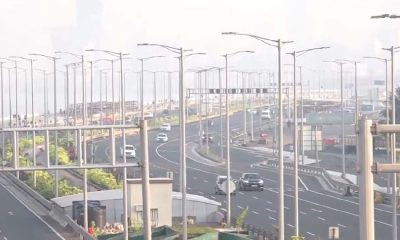Maharashtra
Mumbai: CR To Install More CCTV Cameras, Talk Back Systems In Ladies Coaches Of Local Trains; Panic Buttons On Every Platform
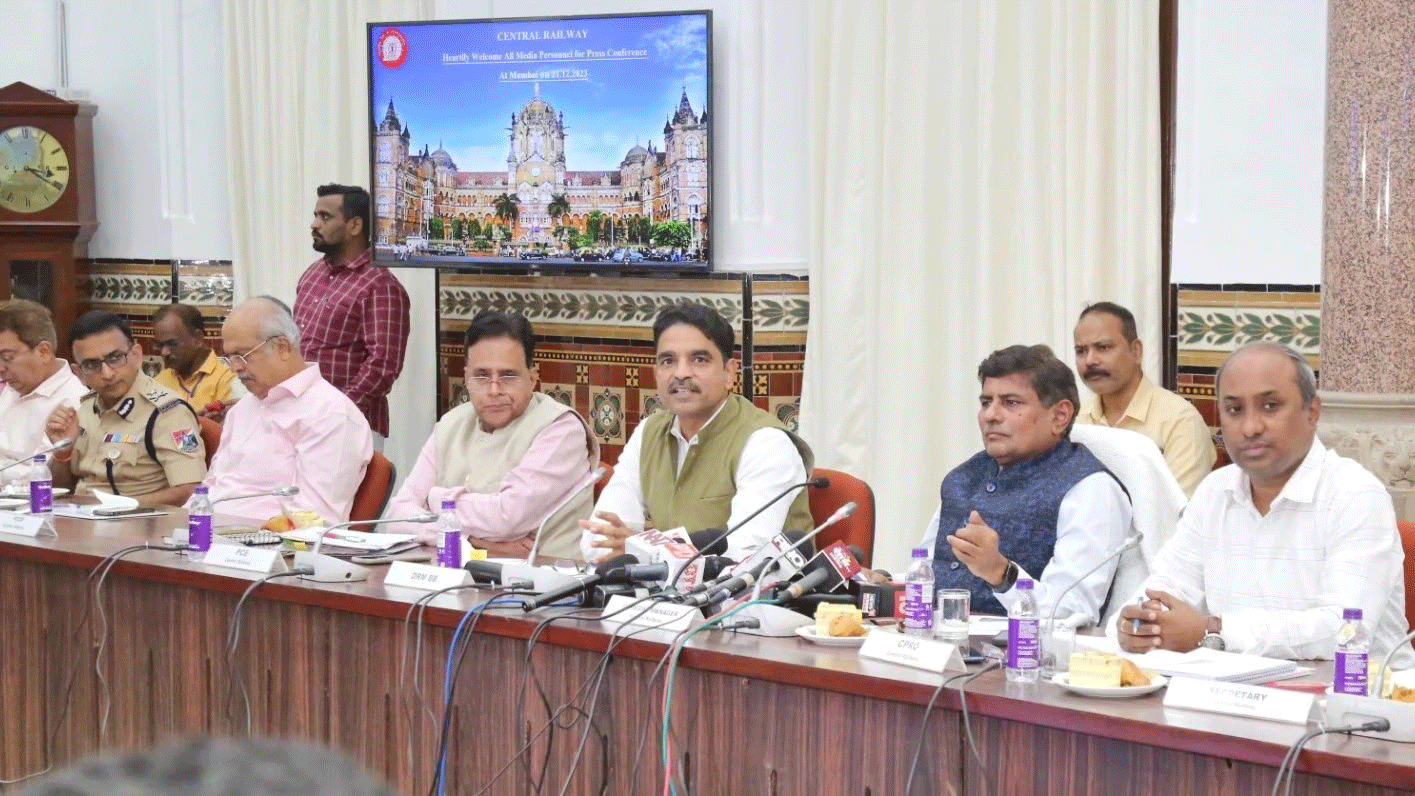
The Central Railways (CR) is taking significant strides to enhance the safety, security, and efficiency of its services, with a comprehensive set of initiatives aimed at benefiting commuters. In a press conference on Thursday, Ram Karan Yadav, the General Manager of Central Railways, highlighted several key projects and improvements.
Yadav acknowledged the challenges associated with introducing more 15-car local train services, emphasizing the necessity for platform extensions to accommodate the longer trains. When questioned about the accommodation in first-class compartments for women, he stated that existing compartments adhere to norms, but further consideration would be given based on demand.Asked about the proposed station between Mulund and Thane he said authorities concerned have yet to allocate the necessary land for the new station.
Enhanced security for women
One of the primary focuses is the safety of women passengers. CR has undertaken the task of equipping all ladies coaches of suburban trains with CCTV cameras and TalkBack systems by March 2024. Currently, 421 out of 771 coaches are already equipped with CCTV, and emergency TalkBack Systems are operational in 512 ladies coaches. The “Meri Saheli” scheme has been launched to secure women traveling alone on long-distance trains, with special attention to 103 identified crime-prone trains.
40 critical signals grappling with visibility and identity issues
Mumbai division of CR has identified 40 critical signals grappling with visibility and identity issues. According to Yadav a comprehensive plan for the potential relocation of these signals onto gantries will be executed in adherence to the guidelines set by the Railway Board. The Mumbai division, which boasts nearly 2000 signals, including 390 on the right side, has identified this subset of signals as a priority due to visibility challenges.
Station security and technological advancements
Beyond the trains, CR is investing in station security with the installation of panic buttons at two locations on each platform across its 117 major stations. Additionally, advanced technology, such as Video Analytics and Face Recognition capabilities, is being integrated into CCTV systems at prominent stations.
Innovative driver assistance systems
To enhance the safety of train operations, CR is implementing Advanced Driver Assistance Systems (ADAS) in suburban trains. ADAS includes audio alert units, Signal Location Announcement System (SILAS), and a Virtual Reality Based training module for crew training. The ADAS, combined with Cabin Video Voice Recording Systems (CVVRS), ensures continuous monitoring of the crew’s status, addressing concerns like fatigue, distraction, mobile usage, and smoking.
Infrastructure upgrades, redevelopment
CR is actively involved in infrastructure development, with the ongoing redevelopment of Chhatrapati Shivaji Maharaj Terminus (CSMT) and major upgrades at Nagpur and Ajni stations. The timeline for the CSMT redevelopment project is targeted for completion within the next 30 months.
79 unauthorised entry points
CRs Mumbai’s division has identified 79 unauthorized entry points out of this 12 already closed .Efforts are on to close the remaining points gradually to control the trespass. Furthermore, the Mumbai division has sanctioned the construction of a 46 km boundary wall at various locations, with 3.5 km completed and the rest in progress. Additionally, 204 locations have been earmarked for boundary wall/fencing construction, with 25 already completed.
Despite these measures, Yadav said that in the past year, 272 trains experienced delays due to human run-over incidents, with 227 delays recorded in the current financial year. Expressing concern over the loss of precious lives, Yadav urged the public to refrain from crossing railway tracks for their safety.
Speed enhancements of suburban trains
According to Yadav, Mumbai Division is set to boost local train speeds in three suburban sections. The Tilak Nagar to Panvel harbor line, currently at 80 kmph, aims to reach 105 kmph by March ’24. Similarly, the Thane-Vashi and Nerul-Kharkopar sections are undergoing speed enhancements projected to conclude by March ’24. Additionally, the Karjat-Khopoli section’s speed is targeted to increase from 60 kmph to 90 kmph by March ’24, contributing to overall improvements in local train efficiency.
Passenger amenities
CR is focused on improving passenger amenities, including the development of subscription-based “Woloo” toilets for women at six stations in Mumbai. These modern facilities are equipped with WiFi, central air conditioning, access control software, and sanitary napkin dispensers.
Environmental initiatives
CR is actively pursuing green energy solutions with the installation of 8.2 MW of rooftop solar energy and plans for an additional 10 MW in the near future. Wind power energy, amounting to 56.4 MW, is being utilized for traction. The commitment to environmental sustainability also includes operating 98 Linke Hofmann Busch (LHB) rakes on Head on Generation (HOG), achieving an operational efficiency of 85%.
Social responsibility and security measures
The Central Railways, through its Railway Protection Force (RPF), has undertaken various measures such as rescuing 1121 children, saving lives, recovering stolen railway material, and cracking down on ticket touts, unauthorized hawkers, and male passengers in ladies’ compartments.
AC coaches of long distance trains will be equipped with smoke detectors
According to Yadav, smoke detection system in 837 AC coaches (464 during this year) already provided. In remaining 372 coaches it will be provided upto March 2024″ said Yadav .A total of 103 crores. Passengers carried by CR in this financial year as compared to 94 crores last year upto Nov’23.
Hundred percent electrification
According to Yadav, hundred percent Electrification of broad gauge routes except new line of Ashti- New Loni section of 40 Kms which is planned to be completed by March 24.Thereby reducing the traction change.
Maharashtra
Winter rains expected in the state, alert issued in three districts
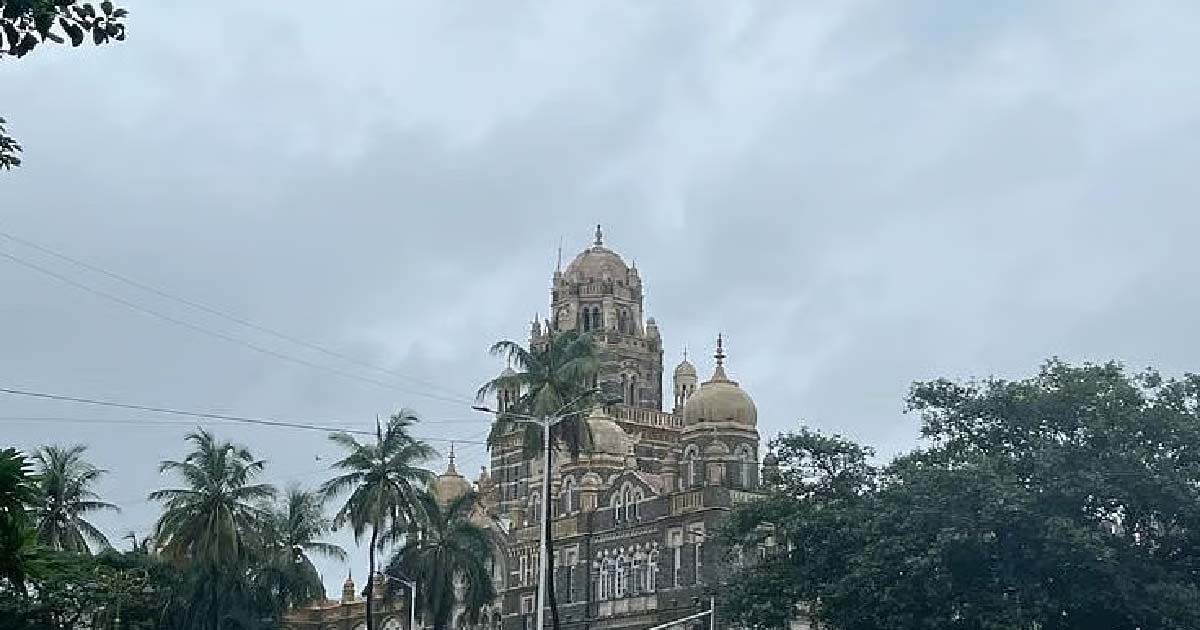
Mumbai: The weather in the state is constantly changing. Now after the severe cold, the Indian Meteorological Department has given a major warning of direct rain. The state is currently facing favorable weather for rain.
The state has been experiencing cold and temperature in the last few days. The mercury is continuously falling. Pune is experiencing severe cold, Punekar is facing pink cold due to the drop in temperature. Not only Pune, many parts of the state are experiencing severe cold and cold winds are blowing from the north. North India is experiencing severe cold and the mercury is likely to fall further in the next few days. However, the cold has decreased slightly since yesterday. The mercury is falling in the districts of Mumbai, Nagpur, Akola, Solapur, Chhatrapati Sambhaji Nagar, Beed, Nanded, Parbhani, Hingoli, Ahlia Nagar, Gadchiroli, Gondia, Jalgaon, Bhandara, Ayutthaya. The mercury in Dhule fell to 7.5 Celsius. The Indian Meteorological Department has now issued a big warning.
Although the cold is being felt at the moment, the cold has decreased in some areas compared to the last two or three days. Not only this, the weather is also cloudy. Currently, the environment is favorable for rain in the state. The Indian Meteorological Department has also issued a rain warning in some districts. Rain warnings have been issued in Kolhapur, Sangli and Sindhudurg districts.
The mercury is below 10 degrees in some places. On Friday, the lowest temperature in the state was recorded in Dhule. The temperature was recorded in Dhule at 7.5 degrees. The temperature was recorded in Parbhani at 8.9. The temperature was recorded in Nafad at 8 degrees Celsius. The mercury dropped to 11 degrees in Pune, Ahlia Nagar and Mahabaleshwar. Today, the weather is favorable for rain in some cities of the state. There will be light to moderate rain in Kolhapur, Sangli and Sindhudurg.
The mercury has dropped below 10 degrees in Pune. Due to which there is a heavy fog in the air. To avoid the cold, Ganpati Bappa is traditionally dressed in a woolen sweater and ear caps at Saras Bagh in Pune. This sweater is given to Ganpati Bappa with the pleasant feeling that Ganpati Bappa is also feeling the cold. Every winter, whenever the cold increases, Ganpati Bappa is given a sweater.
Maharashtra
Disturbance at Kalyan Ideal College over offering Bajrang Dal prayers, students pressured to apologize with Jai Shri Ram slogan, tension remains under control
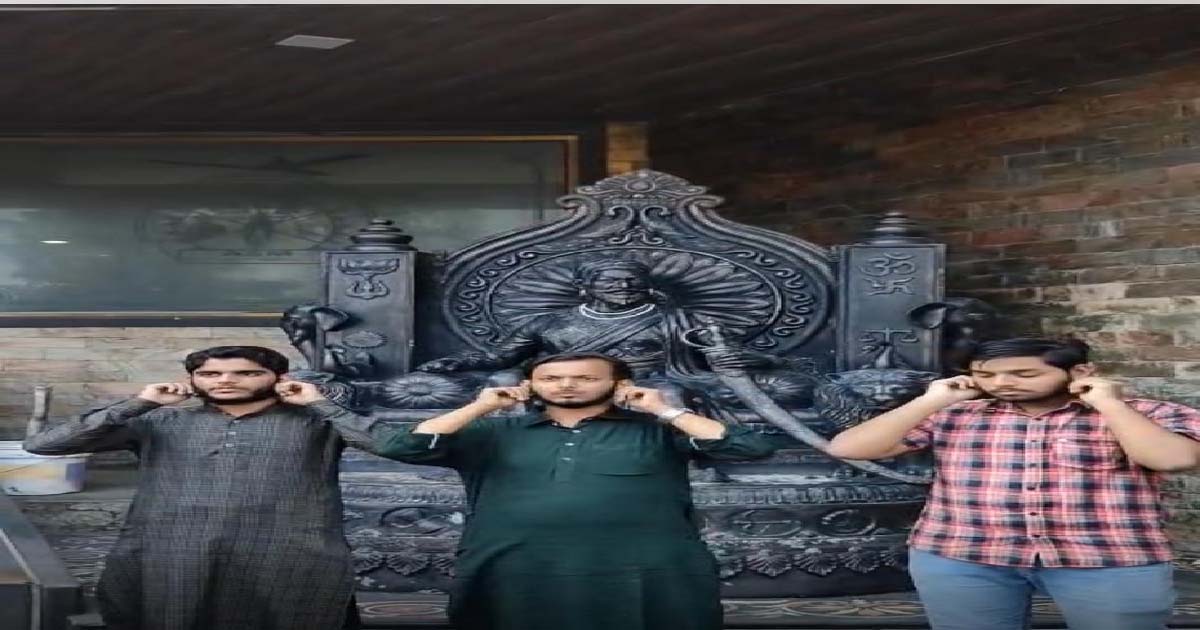
Mumbai: Vishwa Hindu Parishad and Bajrang Dal were in a frenzy over prayers at Ideal College in Kalyan, adjoining Mumbai. Its mischief increased so much that it forced the students to apologize. This extremist group intimidated the students and forced them to apologize in front of the statue of Shivaji Maharaj and the southern extremist was seen raising the slogan of Jai Shri Ram with hooliganism. This video is viral on social media, but so far the police has not taken any concrete action on this issue. Controversy arose over offering prayers at Ideal College in Kalyan area. The students apologized, while the college administration has promised action.
According to initial details, the controversy escalated after a video of some students of the pharmacy department of Ideal College offering prayers on the college campus went viral on social media. As soon as the news of this was received, workers of Vishwa Hindu Parishad and Bajrang Dal reached the college and lodged a protest with the administration. Meanwhile, the local police also reached the college after the commotion and reviewed the situation but no case has been registered in this matter.
According to the college administration, some students were offering prayers in an empty classroom for a few minutes. Someone shared the incident on social media. After the video went viral, some organizations protested and demanded action against the students involved.
The police reached the college and brought the situation under control. However, the college administration requested the police that since the matter is related to the academic campus, it should be resolved at the college level. Respecting the administration’s request, the police handled the situation peacefully.
The college administration then summoned the concerned students. The students admitted that they had offered prayers but they had no intention of inciting any controversy or inflaming religious sentiments. To avoid any misunderstanding, the students apologized to the administration and the staff present there.
The college administration said that discipline and rules are essential in educational institutions. Such religious activities are not in accordance with the rules of the institution and strict vigil will be maintained to ensure that no student repeats such incidents in future. He also assured that necessary action will be taken against the students involved.
The college campus is under complete control after the incident and the police have withdrawn from the spot after a short period of surveillance.
Currently, the police administration has handled the matter peacefully, while the college has also taken cognizance of the matter internally. However, no statement has been issued by anyone yet.
Maharashtra
Charkop Firing Case: Four More Arrested In Attempt On Real Estate Agent Freddy D’Lima; Total Accused Now Five
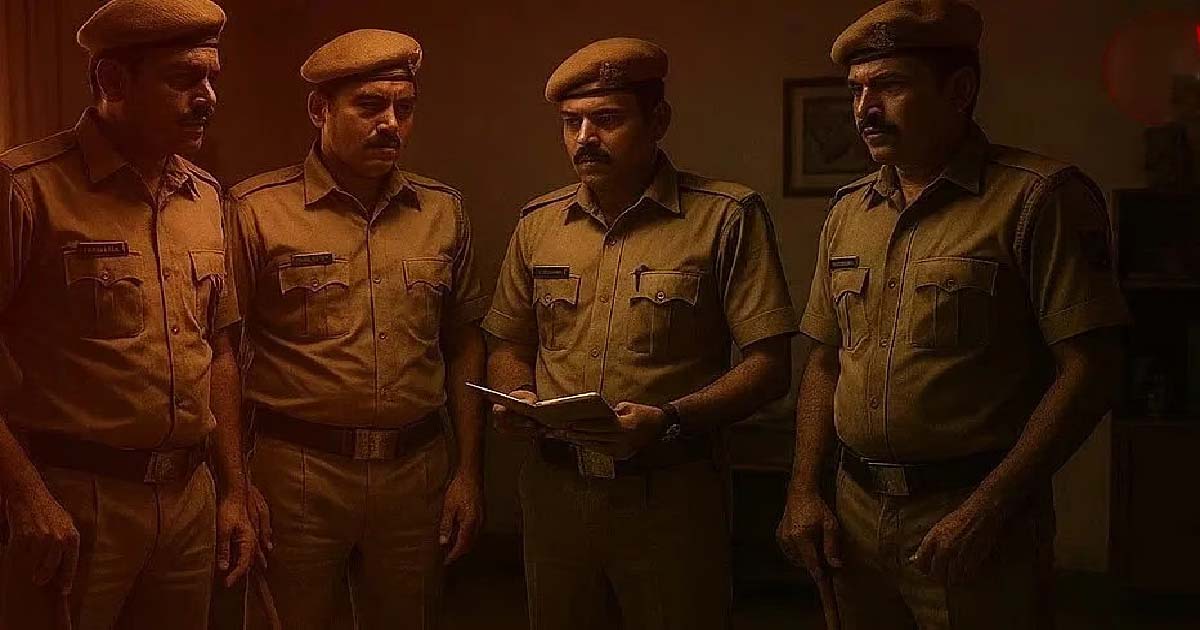
Mumbai: In the Charkop firing case where 42-year-old real estate agent and social worker Freddy D’Lima was targeted, the Mumbai Crime Branch arrested four more accused on Friday.
The arrested men have been identified as Rajesh Chauhan (42), resident of Kandivali; Subhash Mohite (44), resident of Virar; Mangesh Choudhary (40), resident of Pune; and Krishna Singh (25), resident of Thane.
The arrests were made by Unit 11, under the leadership of Unit 6’s PI Bharat Ghone, following the directive of DCP Vishal Thakur. All four were traced and detained from Kolhapur before being brought to Mumbai for interrogation.
With these arrests, the total number of accused in the case has reached five. On Thursday, Charkop Police had arrested 35-year-old Munna Sheikh, alias Guddu, a bar and restaurant manager, for his alleged involvement in planning the attack.
During investigation, police found that Guddu had a financial dispute with D’Lima. Officers suspect that Guddu may have hired shooters to eliminate D’Lima.
An officer revealed that both Guddu and D’Lima live in the same housing society but were involved in redevelopment deals with different builders. The project was reportedly valued at around ₹4 crore, which may have caused prolonged tension between the two.
It is suspected that this dispute may have driven Guddu to plan the firing attack, although police have not officially confirmed this motive. Guddu has been remanded to police custody till November 27. The Charkop Police continue to probe the case.
-

 Crime3 years ago
Crime3 years agoClass 10 student jumps to death in Jaipur
-

 Maharashtra1 year ago
Maharashtra1 year agoMumbai Local Train Update: Central Railway’s New Timetable Comes Into Effect; Check Full List Of Revised Timings & Stations
-

 Maharashtra1 year ago
Maharashtra1 year agoMumbai To Go Toll-Free Tonight! Maharashtra Govt Announces Complete Toll Waiver For Light Motor Vehicles At All 5 Entry Points Of City
-

 Maharashtra1 year ago
Maharashtra1 year agoFalse photo of Imtiaz Jaleel’s rally, exposing the fooling conspiracy
-

 National News1 year ago
National News1 year agoMinistry of Railways rolls out Special Drive 4.0 with focus on digitisation, cleanliness, inclusiveness and grievance redressal
-

 Maharashtra1 year ago
Maharashtra1 year agoMaharashtra Elections 2024: Mumbai Metro & BEST Services Extended Till Midnight On Voting Day
-

 National News1 year ago
National News1 year agoJ&K: 4 Jawans Killed, 28 Injured After Bus Carrying BSF Personnel For Poll Duty Falls Into Gorge In Budgam; Terrifying Visuals Surface
-

 Crime1 year ago
Crime1 year agoBaba Siddique Murder: Mumbai Police Unable To Get Lawrence Bishnoi Custody Due To Home Ministry Order, Says Report









